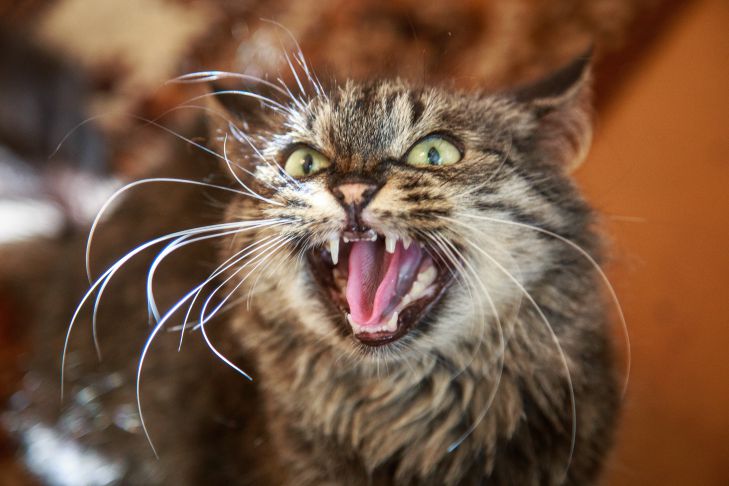A cat's growl is more than just a sound; it is a complex form of communication that can express a variety of emotions and intentions.
From fear to aggression, from pain to warning, the reasons for growling can be varied.
We'll look at how owners can interpret and respond to their pets' growling to better understand their needs and improve human-cat communication.
Shows dominance
Some cats may growl to assert their dominance. If they are in a confrontation with another cat, whether familiar or unfamiliar, they may occasionally squabble.
Growling may indicate that another cat is in its territory and the pet wants it to go away. Cats may growl at people for the same reason.

If a cat feels that a person is invading its space, growling may manifest itself as a defense of territory.
If the warning is not taken seriously and the person or animal does not get the hint, it may result in hissing, scratching, or even attacking.
Irritated
Whether there is a small child pestering or petting the cat aggressively, or a dog wanting to play, the cat may growl in response.
The pet may not necessarily show aggression right away, but rather a warning, letting the other party know that it does not want to be contacted at this time.
If it is just out of excitement, the cat will usually run away as soon as it gets bored.
If she constantly growls at a person or animal in the house, it is best to figure out the reason.
If another dog or cat seems to be constantly trying to engage her in social interactions, it's time to set boundaries.
Afraid
Many things can cause fear in cats, whether it's a completely new stimulus in the environment or a familiar noise.
If your pet finds itself in a situation where it feels uncomfortable, it will start growling.
If you feel that your cat is afraid, try to protect it from the irritants that cause such a reaction.
Protects his food
Many cats exhibit food-related aggression, especially if they were not properly socialized as kittens. During critical stages of their development, kittens will fight over food and learn to eat.
If a kitten is taken away from its mother too early, it can lead to dysregulation in how it copes with normal daily tasks.
If your cat guards its bowl and growls at anyone who comes near, this could be a sign.
Feels cornered
If a cat feels cornered, it is natural for it to growl or display some form of warning or aggression. This increases its fear and puts it in an even more difficult situation.
If a dog is trying to play and the cat cannot escape from it, it may growl or hiss defensively.
Experiencing stress
If there have been a lot of changes in the home recently, your cat may be experiencing a lot of stress. If your pet is dealing with a lot of negative emotions, this can lead to unusual behavior, such as growling.
If stress is the underlying cause, the growling should stop once the stress is reduced.
Hurt
If this behavior is sudden, it may be because your cat is in pain. If you can't identify an environmental trigger that could cause this reaction, pay attention to your cat's body language.
Some illnesses, injuries and chronic conditions can cause severe discomfort to your cat.
If you notice your cat growling when touched in a certain place or shying away from any kind of physical affection, consult a veterinarian.
Often this can be due to age as the joints do not work as they used to. There may also be other issues that cause problems with the skin or internal organs, making the body sensitive to touch.
Previously we wrote about mistakes in keeping decorative rabbits.








